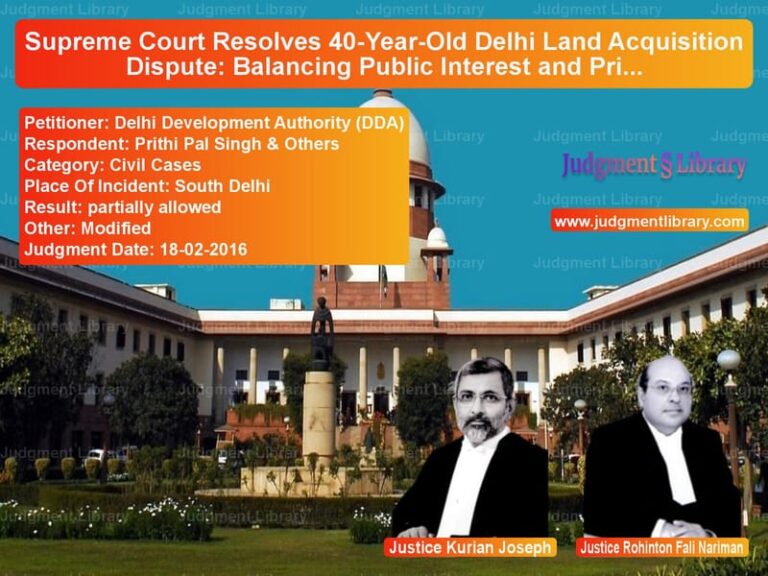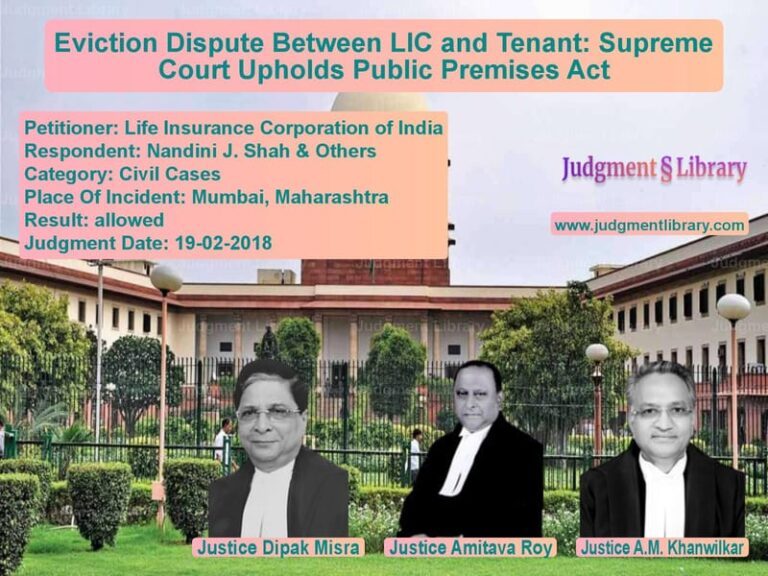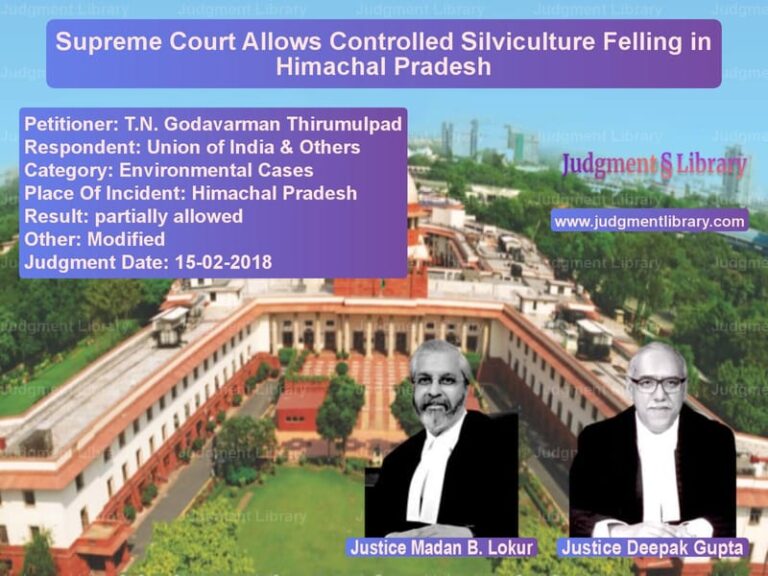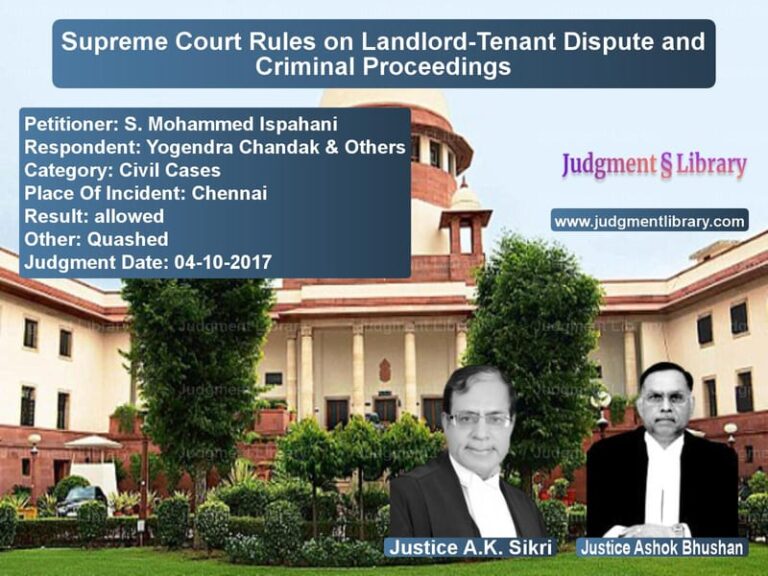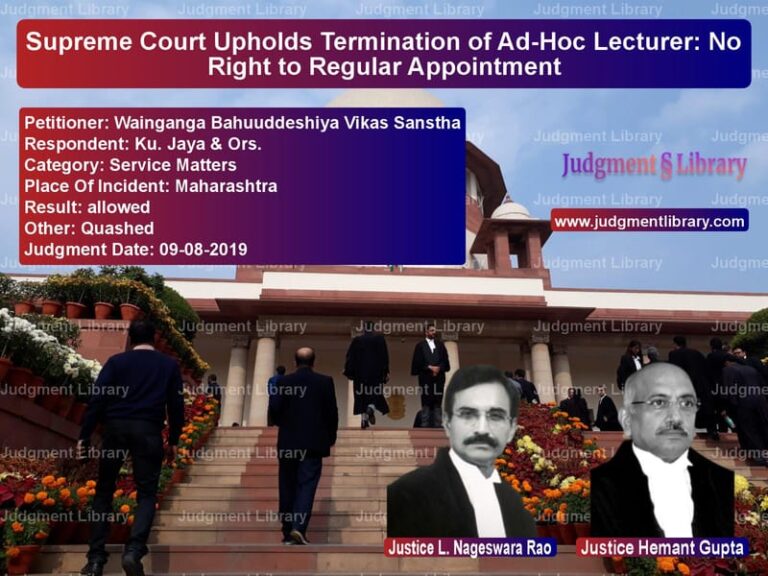Supreme Court Directs High Court to Decide Compassionate Appointment Case on Merits
The Supreme Court of India, in the case of South Eastern Coalfields Ltd. & Others vs. Gulshan Prakash, addressed an appeal concerning the denial of a compassionate appointment to the respondent, whose father had passed away while in service. The Court ruled that the High Court must decide the writ appeal on its merits instead of proceeding with interim orders, ensuring that the case is resolved based on legal principles.
Background of the Case
The case arose when the respondent, Gulshan Prakash, applied for a compassionate appointment under the National Coal Wage Agreement (NCWA) following the death of his father, an employee of South Eastern Coalfields Ltd. The company rejected the application on the grounds that the respondent’s mother was already employed and financially capable of maintaining the family. The respondent challenged this decision by filing a writ petition before the Chhattisgarh High Court.
The learned Single Judge of the High Court ruled in favor of the respondent, directing the employer to reconsider his application for compassionate appointment. Aggrieved by this, South Eastern Coalfields Ltd. filed an appeal before the Division Bench of the High Court.
During the pendency of the appeal, the Division Bench declined to grant interim relief and directed the employer to comply with the Single Judge’s order. This prompted the employer to approach the Supreme Court, challenging the High Court’s interim order.
Arguments by the Appellants (South Eastern Coalfields Ltd.)
- The company argued that as per the terms of the NCWA, compassionate appointments are meant for cases where the family is left without any financial support due to the employee’s demise.
- They contended that since the respondent’s mother was already employed, he was not entitled to a compassionate appointment.
- The appellants asserted that the High Court should have granted a stay on the Single Judge’s order until the appeal was decided.
- They emphasized that the purpose of compassionate appointments is to alleviate immediate financial hardship and not to provide employment as a matter of right.
Arguments by the Respondent (Gulshan Prakash)
- The respondent argued that he was eligible for a compassionate appointment under the NCWA, which governs employment in coal companies.
- He contended that the High Court had correctly directed the employer to consider his case, as the rejection was based on a restrictive interpretation of the policy.
- The respondent maintained that despite his mother’s employment, the family faced financial difficulties after the death of the earning member.
- He urged the Court to uphold the High Court’s order and direct the employer to grant him an appointment.
Supreme Court’s Analysis and Judgment
The Supreme Court reviewed the orders passed by the High Court and the principles governing compassionate appointments. The key observations were:
- Scope of Compassionate Appointments: The Court reiterated that such appointments are meant to provide immediate financial assistance to a bereaved family and are not a vested right.
- Validity of the Employer’s Rejection: The employer’s decision was based on the premise that the respondent’s mother was employed and financially capable of supporting the family.
- Need for a Final Decision on Merits: The Court observed that the High Court had not decided the appeal on its merits but had merely issued an interim order.
- Judicial Restraint on Interim Orders: The Court emphasized that interim orders should not grant final relief, especially in service matters involving policy considerations.
The Supreme Court ruled:
“The writ appeal pending before the High Court shall be decided on its own merits as expeditiously as possible. We have not expressed any opinion on the merits of the case, and the interim order shall continue until the disposal of the writ appeal.”
Final Verdict
- The Supreme Court set aside the interim order of the Division Bench and directed the High Court to decide the writ appeal on its merits.
- The Court clarified that it had not ruled on whether the respondent was entitled to a compassionate appointment, leaving that decision to the High Court.
- The interim order granted by the Supreme Court would remain in effect until the High Court decided the matter.
Implications of the Judgment
This ruling underscores the principle that courts must decide employment-related cases based on legal principles rather than interim relief orders. It also reinforces the view that compassionate appointments should be granted based on policy criteria and not as an automatic right.
The decision ensures that cases involving compassionate employment are resolved through proper judicial scrutiny, preventing unnecessary litigation delays. By directing the High Court to decide the matter on its merits, the Supreme Court has upheld procedural fairness in employment disputes.
Petitioner Name: South Eastern Coalfields Ltd. & Others.Respondent Name: Gulshan Prakash.Judgment By: Justice Ajay Rastogi, Justice Bela M. Trivedi.Place Of Incident: Chhattisgarh.Judgment Date: 19-02-2023.
Don’t miss out on the full details! Download the complete judgment in PDF format below and gain valuable insights instantly!
Download Judgment: south-eastern-coalfi-vs-gulshan-prakash-supreme-court-of-india-judgment-dated-19-02-2023.pdf
Directly Download Judgment: Directly download this Judgment
See all petitions in Public Sector Employees
See all petitions in Recruitment Policies
See all petitions in Judgment by Ajay Rastogi
See all petitions in Judgment by Bela M. Trivedi
See all petitions in Remanded
See all petitions in supreme court of India judgments February 2023
See all petitions in 2023 judgments
See all posts in Service Matters Category
See all allowed petitions in Service Matters Category
See all Dismissed petitions in Service Matters Category
See all partially allowed petitions in Service Matters Category


